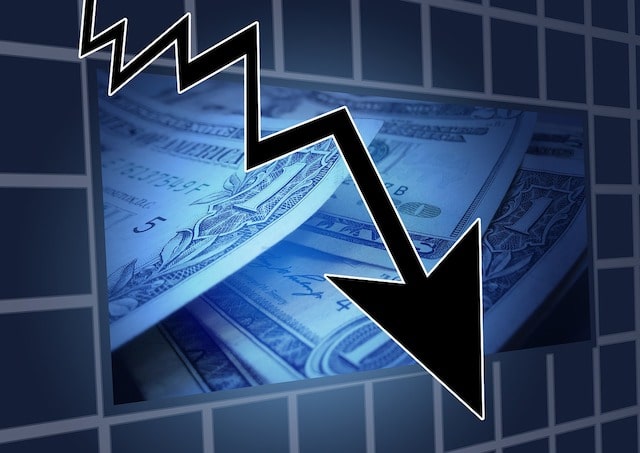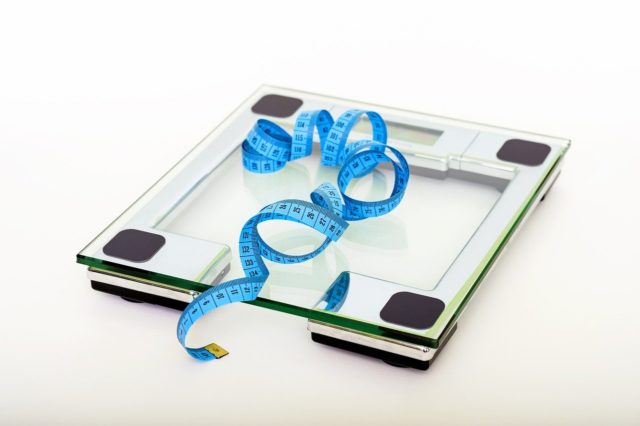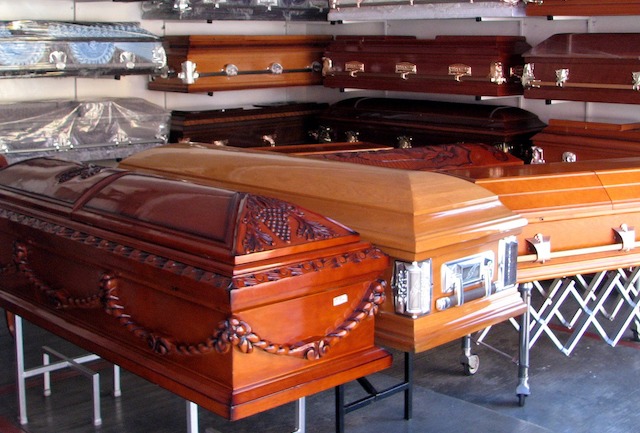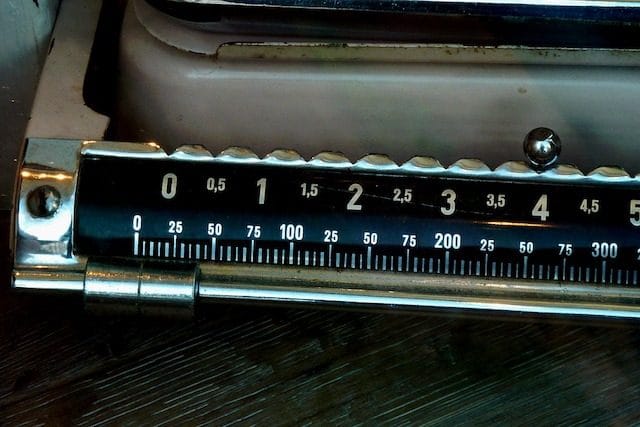Мир полон обратных корреляций, на которые мы мало обращаем внимания. Например, чем меньше воды вы потребляете, тем жарче вы чувствуете себя в летний день. Это имеет смысл, и вы вряд ли удивитесь этому. Все, где две переменные имеют противоположные отношения, подходит, пока значение одной переменной, увеличивающееся, связано со значением другой, уменьшающимся. Во многих случаях это имеет смысл, но иногда эта связь может быть довольно удивительной.
10. Чем больше вам нужно мочиться, тем меньше вы верите в свободу воли

Каково ваше мнение о свободе воли? Верите ли вы, что действительно контролируете свои действия и свою судьбу? Или вы чувствуете, что события предопределены, и вы находитесь на пути судьбы, нравится вам это или нет? А также, сколько тебе сейчас нужно, чтобы пописать?
Исследователи, пытавшиеся определить, что делает человека более или менее склонным верить в свободу воли, обнаружили любопытную корреляцию еще в 2014 году. Часть проведенного опроса требовала, чтобы участники описали, как они себя чувствовали физически — были ли они голодны, устали или должны были идти. В ванную. Те, кто больше всего нуждался в туалете, меньше всего верили в свободу воли.
В своем роде исследование, которое было очень небольшим и включало всего 81 человека , имеет смысл. Если вы находитесь в середине опроса и вас продолжает беспокоить позыв к мочеиспусканию, вполне разумно предположить, что вы вынуждены подчиняться воле собственного мочевого пузыря, а не контролировать свою судьбу. Имеет ли это какое-либо глубокое значение для философии, еще предстоит увидеть.
9. Чем больше генеральный директор получает, тем хуже работает компания

Всякий раз, когда зарплата генерального директора попадает в новости, обычно это происходит не по уважительной причине. Часто это делается для того, чтобы показать, насколько нелепо переплачивают люди, управляющие компаниями, по сравнению с их работниками на местах. Это уже много лет является довольно распространенной темой в средствах массовой информации. Но меньше всего вы слышите о том, стоят ли они того. Если у компании дела идут на удивление хорошо, то, возможно, генеральный директор сделал что-то, чтобы заработать эти деньги, верно? Может быть? Ну, по крайней мере, одно исследование показало, что верно как раз обратное. Чем больше получает генеральный директор, тем хуже дела компании в долгосрочной перспективе.
Независимо от того, сколько получает генеральный директор, есть прямые доказательства того, что компания будет работать хуже с точки зрения показателей запасов и бухгалтерского учета в течение следующих трех лет по мере увеличения этой заработной платы. В ходе исследования было рассмотрено более 1500 крупных компаний за трехлетний период, чтобы собрать эмпирические данные, подтверждающие это утверждение. Выяснилось, что лучшие 5% компаний с точки зрения зарплаты генерального директора работали на 15% хуже, чем их коллеги.
Дальнейшее исследование рассматривало 800 генеральных директоров из 400 компаний среднего и крупного размера в США. Они сравнили заработную плату генерального директора с доходом акционеров с 2006 по 2015 год. Был обнаружен тот же результат. Если бы человек вложил 100 долларов в 20% компаний с самыми высокооплачиваемыми руководителями, его инвестиции вернули бы265 долларов через 10 лет . Но если бы они выбрали самые низкооплачиваемые компании CEO, они бы заработали 367 долларов. Конечно, разница невелика, но такая высокая зарплата ответственных лиц вызывает сомнения.
8. Чем дороже свадьба, тем выше вероятность развода

Для большинства людей, которые женятся, сама свадьба имеет большое значение. Некоторые люди требуют экстравагантного события, которое выдвигает все ограничения. В 2020 году средняя стоимость свадьбы в Америке составляла 20 300 долларов. Средний доход домохозяйства в Америке в том же году составлял 67 521 доллар . Так, на свадьбы люди тратят чуть меньше трети того, что зарабатывают за год. Но потом вы слышите о тех свадьбах, которые стоят целое состояние. Например, принц Чарльз и принцесса Ди, чья скорректированная сумма выросла примерно на 110 миллионов долларов , или Брэд Питт и Дженнифер Энистон, которые потратили 1 миллион долларов , а также Ким Кардашьян и Канье Уэст, которые потратили почти 3 миллиона долларов.
Помимо больших расходов, у этих пар есть еще одна общая черта. Их дорогие браки не гарантировали счастья, и все они развелись. Оказывается, дело не только в знаменитостях: исследования показывают, что чем больше вы тратите на свадьбу, тем больше вероятность развода.
Такие же отношения расходов существуют и с обручальными кольцами , а это означает, что чем дороже кольцо, тем меньше вероятность того, что брак продлится долго. У вас в 1,3 раза больше шансов развестись, если ваши кольца стоят от 2000 до 4000 долларов, чем если кольцо стоит менее 2000 долларов. Если ваша свадьба стоит более 20 000 долларов , вероятность развода в 1,6 раза выше, чем если бы свадьба стоила менее 1000 долларов. Это основано на данных 3000 человек.
Если вы выходите замуж и хотите расстаться с деньгами, не теряйте надежды. Пары, у которых действительно отличный медовый месяц, на самом деле с большей вероятностью останутся вместе.
7. Чем приятнее вы, тем меньше денег вы заработаете

Вы знаете поговорку «хорошие парни финишируют последними?» Обычно это зарезервировано для разговоров о романтике, но на самом деле это может относиться к любой ситуации, в которой кто-то может проявить хороший и добрый подход, а не более агрессивный и, возможно, беспринципный. А в бизнесе оказывается, что это трагическая правда. Чем приятнее вы как человек, тем меньше денег вы заработаете. Во всяком случае, если ты парень.
Исследования показали, что приятные мужчины зарабатывают меньше, в то время как это не влияет на потенциал заработка женщины. Это не очень хорошо для женщин, заметьте. Это просто означает, что у них нет никаких преимуществ в любом случае, в то время как мужчина имеет преимущество, если его воспринимают как неприятного. Неприятный человек воспринимается как жесткий, хороший переговорщик и так далее.
Итак, что значит приятный? Быть сострадательным, полезным, дружелюбным. Вы знаете, вещи, которые вы хотите показать другим или получить от них опыт. Вы заработаете меньше денег и получите меньше повышений по службе.
6. Дети, которые начинают ходить в школу раньше, весят больше

Многочисленные школьные советы на протяжении многих лет обдумывали планы по изменению времени начала занятий. Многие думали, что это могло бы уменьшить заторы на дорогах, если бы дети не ходили в школу, а все взрослые шли на работу. Может быть, это снижает количество несчастных случаев, загрязнение окружающей среды и тому подобное. Но был еще один побочный эффект изменения времени начала. Оказывается, чем раньше ребенок идет в школу, тем больше он весит.
Когда дети меньше спят, они, по-видимому, едят больше жирной пищи. Каждый дополнительный час сна подростка снижает вероятность того, что он съест высококалорийные закуски в течение дня, на 21% . Эти студенты чаще ели между 5 и 7 утра, что приводило к «метаболическому стрессу» и дисфункции.
5. Чем больше людей умирает в любой ситуации, тем меньше людей это заботит

Многие люди считают себя сострадательными и чуткими, и это здорово. Вы должны заботиться о других, если хотите сделать мир лучше, можно возразить. Но вы также можете возразить, что у этого сострадания есть пределы, и оно подкреплено наукой. Например, в любой конкретной трагедии, чем больше жертв, тем меньше людей это волнует. Звучит абсолютно нелогично, но так работает наш мозг.
Массовые жертвы могут быть результатом войн, стихийных бедствий и, конечно же, пандемии, такой как Covid-19. Но людям быстро надоедают новости о таких вещах. Наша способность сочувствовать может наткнуться на стену. Это называется психическое онемение .
Большие числа не способны вызвать эмоциональный отклик у людей. В какой-то момент большое число находится за пределами нашей способности понять. Вспомните те игры, в которых вам нужно угадать, сколько драже в банке. Люди угадывают совершенно неправильные числа, потому что в определенный момент они начинают терять смысл. К сожалению, в результате мармеладки и смерти оказались в одной лодке.
4. Чем больше вы ругаетесь, тем меньше боли вы чувствуете

Вы любите пошлости? Вы должны быть. Оказывается, ругань — это панацея, которая может вылечить то, что вас беспокоит, при условии, что то, что вас беспокоит, является лишь незначительным дискомфортом. Чем больше вы ругаетесь, тем меньше боли вы почувствуете. Это будет полезно в следующий раз, когда вы споткнетесь и будете готовы бросить F-бомбу.
Более 90 человек попросили погрузить руки в ледяную воду. Они держали его там, пока не начали чувствовать боль от холода. Это был их болевой порог. В последующих тестах участников просили сделать это снова, только на этот раз проговорив несколько тестовых слов. Одно было словом F, а другие были составлены из ругательств, таких как « твизпайп ».
Только те, кто произносил слово на букву «F», могли дольше справляться с болью, что указывало на то, что оно оказывало болеутоляющее действие. Чем больше они клялись, тем больше боли они могли вынести.
3. Когда ваш вес увеличивается, ваше обоняние ухудшается.

В наши дни ожирение считается эпидемией , и многие люди борются со своим весом. Причины разнообразны и влияют на все: от малоподвижного образа жизни до типов продуктов, которые мы все едим, и так далее. И оказывается, что ваша склонность к ожирению связана с вашим обонянием. Чем хуже ваше обоняние, тем больше вероятность того, что вы страдаете ожирением.
Интересно, что это не причинно-следственный эффект, который вы можете предположить, исходя из того, как он представлен. Люди не толстеют, потому что не могут чувствовать запахи. На самом деле все наоборот. Они теряют обоняние, поскольку они становятся тучными. Мы знаем это, потому что было показано, что бариатрическая хирургия восстанавливает улучшенное обоняние по мере потери веса.
2. Время приготовления пасты обратно пропорционально длине палочки.

Как узнать, что паста готова? Опытный шеф-повар может добиться успеха каждый раз, но около трети опрошенных утверждают, что с трудом готовят пасту, а Интернет переполнен статьями, в которых рассказывается обо всех способах, которыми вы делаете это неправильно. К счастью для тех, кто не отличит аньолотти от букатини, есть научный способ определить степень готовности макарон, и все это связано с обратной зависимостью от времени приготовления макарон и того, насколько они близки к другому кусочку макарон, прежде чем они слипнутся. .
Исследователи изучили физику того, что происходит при приготовлении макарон, и определили, что по мере приготовления макароны длина палочки уменьшается. Длина палочки — это «расстояние, на котором две лапши слипаются после того, как вы погрузите их в воду и вытащите из нее». Это пропорционально времени приготовления. И это означает, что независимо от того, как вы готовите макароны или как долго они варятся (что может быть неточным способом измерения степени готовности), все, что вам действительно нужно, — это линейка. И некоторое понимание того, как вам нравится приготовленная паста.
Если вы поклонник al dente, идеальная длина палочки — 30 миллиметров . Для более мягких макарон вам понадобится 18 миллиметров.
1. Уверенность Спока в «Звездном пути» была обратно пропорциональна его точности.

Если верить произвольным интернет-спискам, мистер Спок — величайший персонаж в истории «Звездного пути» , франшизы, которая набирала силу на протяжении семи десятилетий. Создатель Trek Джин Родденберри однажды сказал, что мистер Спок, наполовину человек и наполовину вулканец, занимает центральное место в темах шоу. В частности, он имел в виду темы терпимости и способности человечества расти и взрослеть. Он следует путем логики, как и все вулканцы, и изображается как самый умный член команды оригинального сериала, способный выполнять множество сложных вычислений в уме.
Несмотря на то, что зрителям очень часто говорят, насколько Спок умен и насколько логичен его вид, сериал этого не подтверждает. Сценаристка Джулия Галеф смотрела каждый эпизод «Трека» и каждый фильм с участием Спока, а затем подсчитывала, как часто он делал предсказания и как часто эти предсказания сбывались. Данные показывают, что чем больше Спок был уверен в результате, тем больше вероятность того, что он ошибался. На самом деле, в 83% случаев , когда Спок называл что-то невозможным, он оказывался неправ. Это ужасный послужной список. С другой стороны, чем больше он был уверен, что что-то обязательно произойдет, тем больше вероятность того, что этого не произойдет вообще.
Очевидно, все это повествовательный инструмент для шоу, которое пыталось показать, что человеческие эмоции и интуиция побеждают холодную, инопланетную логику, но вы могли бы подумать, что они, по крайней мере, дали бы ему шанс успеха 50/50 за то, что он наполовину человек.
📚 Не пропустите интересную информацию:
-
10 попыток шантажа, которые привели к обратным результатам
Шантаж так же стар, как секреты. Представление о том, что кто-то использует секретную информацию, чтобы заставить другого делать то, что он хочет, существует во всех... -
Как выбрать выгодный курс обмена валюты: советы и рекомендации
Простые советы экспертов помогут сэкономить деньги: сравнение обменников, проверка комиссий, выбор надежных сервисов. -
Особенности ведения бухгалтерии для ИП: Аутсорсинг электробезопасности
Аутсорсинг электробезопасности предполагает передачу обязанностей по обеспечению безопасной эксплуатации электрического оборудования специализированным организациям. Это включает регулярные инспекции, обучение персонала, разработку инструкций и контроль. -
Консультация юриста по семейным вопросам
Консультация квалифицированного юриста по семейным вопросам поможет вам разобраться в сложной ситуации, защитить свои права и интересы, а также избежать ошибок, которые могут дорого обойтись... -
Как преподаватели используют чат-ботов для выдачи уроков и домашних заданий
Цифровые инструменты всё активнее проникают в сферу образования. Онлайн-курсы, дистанционное обучение, гибридные форматы — всё это требует от преподавателя не только передавать знания, но и...







